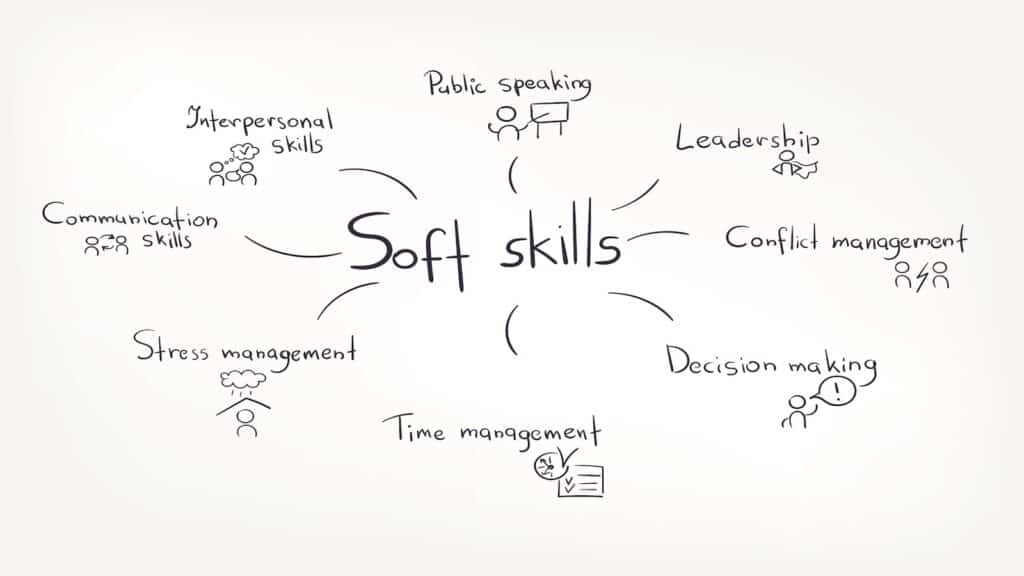Soft skills. Interpersonal skills. Emotional Quotient. There are lots of names for those human characteristics that define how one interacts with the people around you. When employers write up a job description, most people focus on the technical requirements for a position. In the past, the bar for “soft skills” was pretty low – as long as you could get along and work with others, that might be enough. But in today’s hiring landscape, the definition of these skills has expanded, and they are often critical. In fact, even in technical roles, they are sometimes the most important. For this reason, the role of the recruiter has never been more important, as a good recruiter can use their skills to determine if a candidate is going to possess the right “soft skills” for an organization.
The technical skills required of a position are just the building blocks of what will be success in a role. It’s the human skills that will be the defining factor. On a client call, our recruiters spend just as much time talking about soft and hard skills. Every company is different, and there are myriad factors going into what clients need. Often they don’t even know themselves. If they are hiring a developer, it’s easy to list what languages or competencies they need. But when faced with resumes with the same skills and the same amount of experience, how to dig deeper?
We’ve learned how to ask questions of our clients about what past successful candidates were like. Usually more instructive is finding out what didn’t work with employees who have left. Often, hiring managers sit and think about this for the first time, and get sudden insights like, “well we’ve had two people in this role, and both said they wanted more hands-on input from their supervisor, but the supervisor is very hands-off and prefers infrequent 1:1 meetings.” We can make a note that the ability to work independently is key to this role.
Also, we’ve built relationships with our candidates, so we know what makes them tick, and what their strengths are. Are they outgoing, and prefer to work closely with a team, or do they thrive as an individual contributor? Are they extremely detail-oriented and methodical, or more “shoot from the hip” and able to react fast to new conditions? There are so many different work environments, and we believe there is always a match to be found, as long as the recruiter takes the time to find out the needs of both employer and candidate. As recruiters, we’re picking up on things in a conversation that most people aren’t aware of. When we talk to candidates or clients, we’re seeing how the conversation flows, and catching red flags such as a reluctance to be transparent or a tendency to embellish. We learn a lot more from talking to a candidate than we will from a resume.
It is definitely rare to find a candidate that has 100% of the technical requirements of the job AND have all the soft skills that would make it a good match. Some things also just can’t be found on a resume – there is no replacement for a live conversation or interaction. We build relationships with candidates, so we know which soft skills they have, and we build relationships with clients so we know what soft skills they need. Finding a culture fit is of paramount importance for both parties.
One example we recently had: a client was looking for a SAAS sales pro. One of the requirements was previous SAAS experience. We know this is always a tough one to find. But we had an out-of-the-box candidate in mind: a real go-getter who was looking to make a career change, from the fitness industry, from gym management and sales to technology sales. It was those “soft skills” that were the real value in this role – he could learn about SAAS and the product: what is impossible to learn is the motivation, enthusiasm and personality required for the job. The recruiter knew he had those – and also knew the client well enough that he could make the case for why this person was the right one for the role. In the end, it was a perfect match, and he is a top performer in his sales role. If the recruiter had just stuck to just technical requirements, it wouldn’t have happened.
Some things just can’t be listed on a resume. This is where a recruiter comes in. But the hard truth is that these soft skills often turn out to be the key to success.
